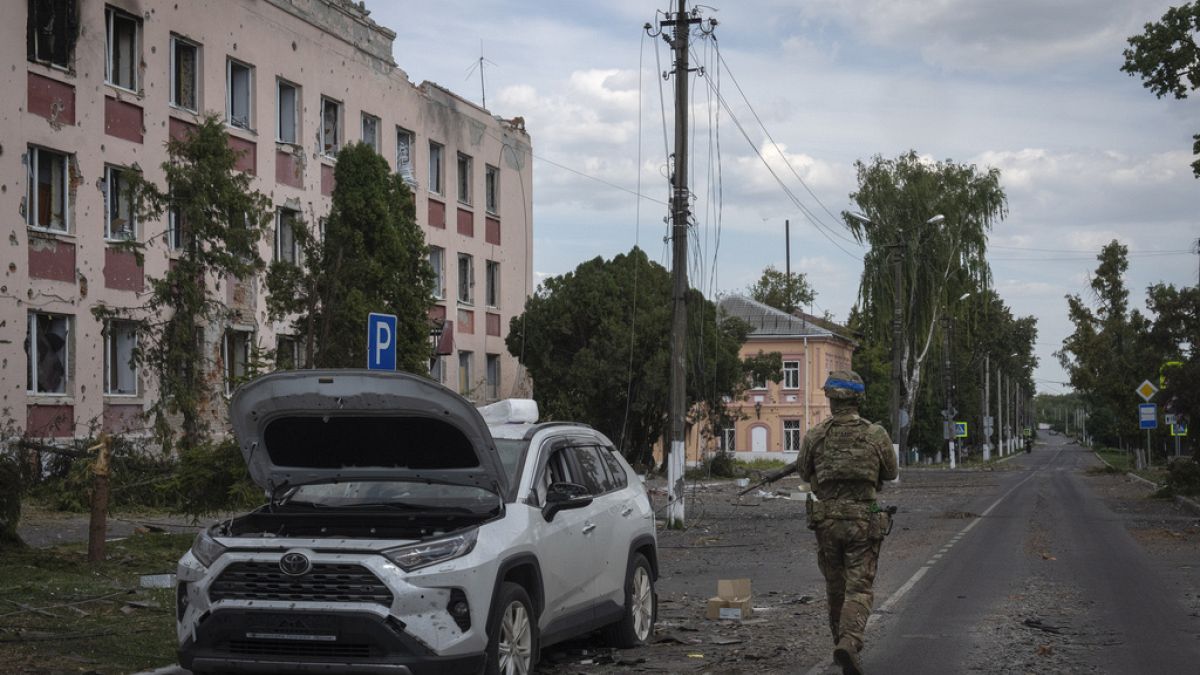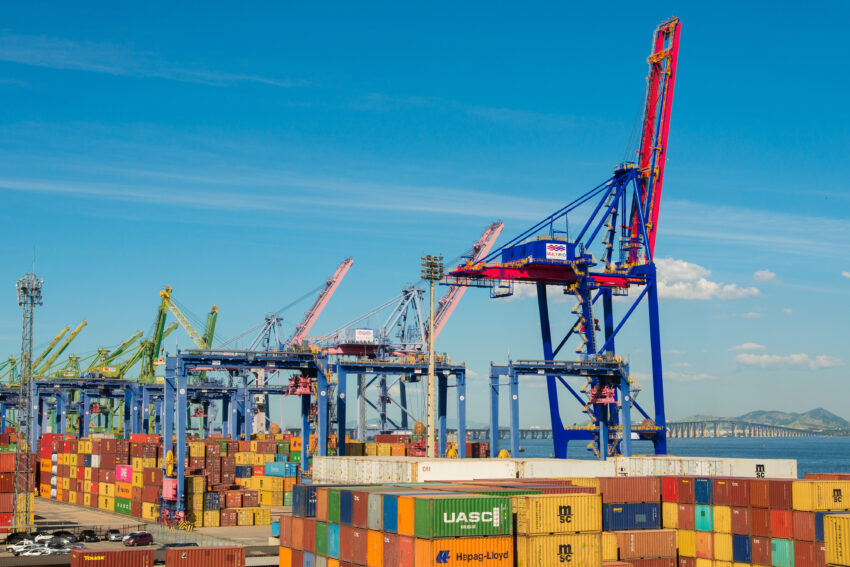We need a a whole-of-society approach to intelligence
If Western countries are to withstand the aggression waged by various rivals and their proxies, sharing insights from the front line is the only way forward — and today, that includes businesses.
Elisabeth Braw is a senior fellow at the Atlantic Council, the author of the award-winning “Goodbye Globalization” and a regular columnist for POLITICO.
A nondescript suite of rooms in an office building in central Oslo hosts activity of the kind one would normally associate with a military headquarters or the CIA. In the central situation room, a monitor displays activity across the world’s oceans, while analysts at neighboring desks update this information around the clock. But this is not an intelligence agency — it’s DNK, a Norwegian insurer of maritime war risk.
Today, intelligence is no longer just the domain of government agencies — or, rather, it shouldn’t be. Companies are now far more likely to be harmed by geopolitically linked events than ever before outside of full-scale wars. Thus, they need to keep a constant eye on the world. And if they do, they’re likely to see things that would be equally useful for their governments to know.
DNK (a partner of the Atlantic Council’s Maritime Threats initiative, which I lead) has long insured merchant vessels against serious risks, and in today’s geopolitical climate, such risks are growing — fast. That means the company needs to know precisely what’s taking place in every corner of the maritime world, at all times.
“Intelligence are knowledge-based forecasts derived from verified data tailored to support decision-making. That’s different from what you get in the news,” said Freddy Furulund, who directs the Intelligence and Operations Center.
“To be able to provide such forecasts, you need to not only describe precisely what has happened, but you also need to contextualize it and describe its consequences for future voyages for the shipowner. We get data pointing in different directions, verify it, contextualize it and, most importantly, assess where it points to.”
Some of this data comes from open sources, some from satellites and other technical means, and some from human sources. All of it is collected legally, and it all helps shipowners decide where to send their ships. “Intelligence providers are often seen as the bringer of bad news,” Furulund observed. “We inform our clients about how dangerous situations are in the days to come, but we also tell them about opportunities,” which can include things like minor changes to a ship’s route or placing armed guards on board.
Staffed by ex-military and intelligence professionals, the Intelligence and Operations Center has been operating since 2016, but intensifying political tensions over the past couple years have made it positively indispensable for both DNK and its clients. “Historically, the war risks insurance market argued that war risks would strike the insureds at random — which meant that loss-prevention activities, such as analysis of threat actors’ intentions and capabilities, weren’t pursued,” explained Svein Ringbakken, DNK’s managing director. But that’s changed dramatically.’

It’s not just that the Houthis are systematically targeting ships linked to Western countries; they also have far better weaponry than pirates ever did — and similar militias could start attacking merchant vessels elsewhere too. Indeed, some countries around the world appear to have decided to disregard global maritime rules altogether. And that makes it imperative for shipowners and insurers — not to mention crews — to understand where misfortune may strike from.
Meanwhile, foreign government officials visiting Norway often schedule a stop at DNK to see the center at work, and Furulund’s team regularly shares information with Western governments. “When we see something that poses an imminent threat to someone, we share that with not only the shipowner but also with the government — if it’s the government of Norway or a friendly country — or with whoever needs to be alerted,” he said. “It’s the ethical thing to do.”
Essentially, if Western countries are to withstand the aggression waged by various rivals and their proxies, sharing insights from the front line is the only way forward. And for Western countries today, it’s businesses rather than soldiers that are on the daily front line. (Should a war break out that would clearly change — but businesses will still face massive geopolitical risks.)
Not every company can operate its own intelligence center, of course, but more and more companies are now discovering they ought to collect threat information more systematically. Businesses simply need to do their best to discern what geopolitically linked risks may face them, not just in the Red Sea but in the Taiwan Strait, the South China Sea, the Baltic Sea, along the Cape of Good Hope route and other waters too — not to mention on land.
The Houthis recently resumed their campaign against Western shipping in the Red Sea after a couple weeks’ silence. Meanwhile, China’s maritime harassment of civilian vessels in the South China Sea continues. Is Beijing likely to expand its punishment of Western companies as proxies for their home countries? Will nations increasingly close to Russia and China try to harm Western companies operating in their countries? Western companies and governments need to know the answers to these questions — or at least gather enough information to make qualified assessments.
As many Western companies operate in places Western governments don’t, they should then share their insights with their home governments and other friendly states. And governments should return the favor.
We may not be able to clearly predict the acts of hostile states and groups with complete certainty, but making qualified assessments is far superior to sailing into uncharted waters. And that’s why we need a whole-of-society approach to intelligence too.
What's Your Reaction?

















































